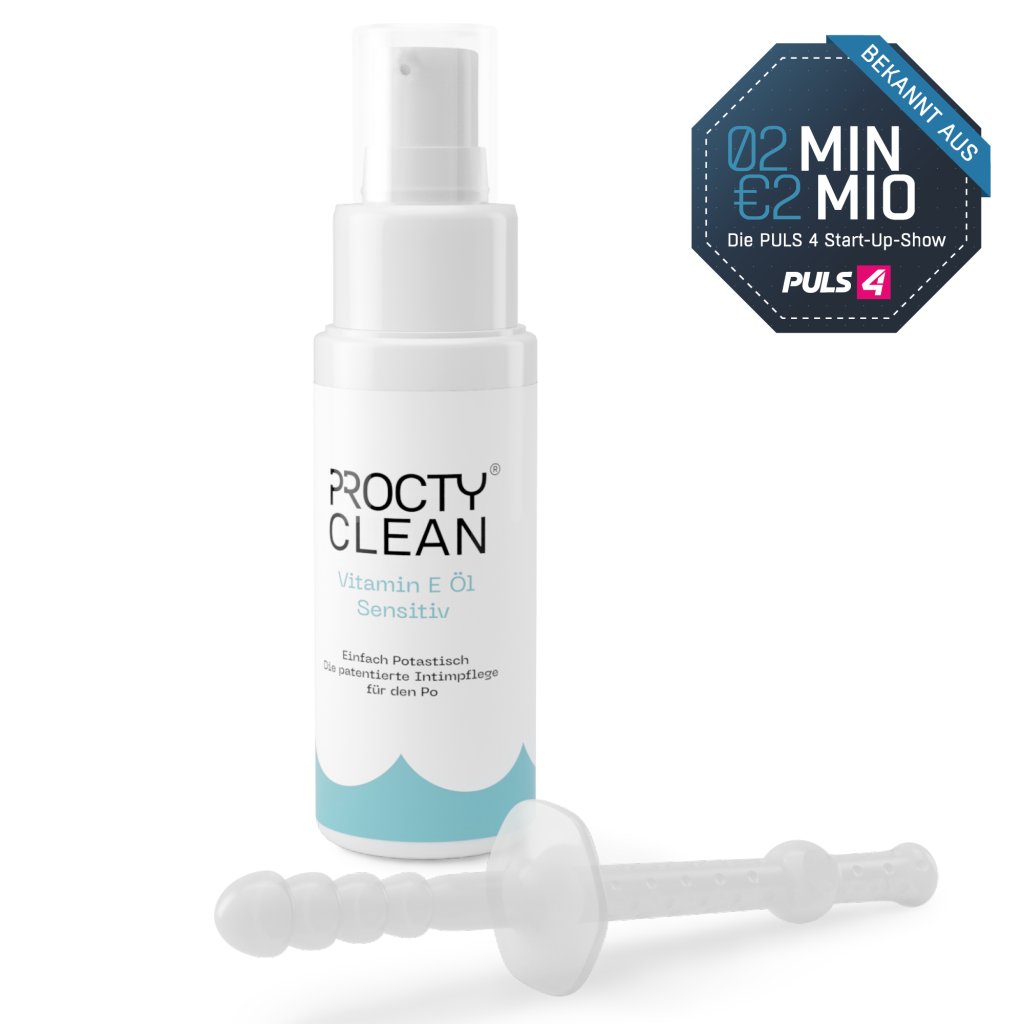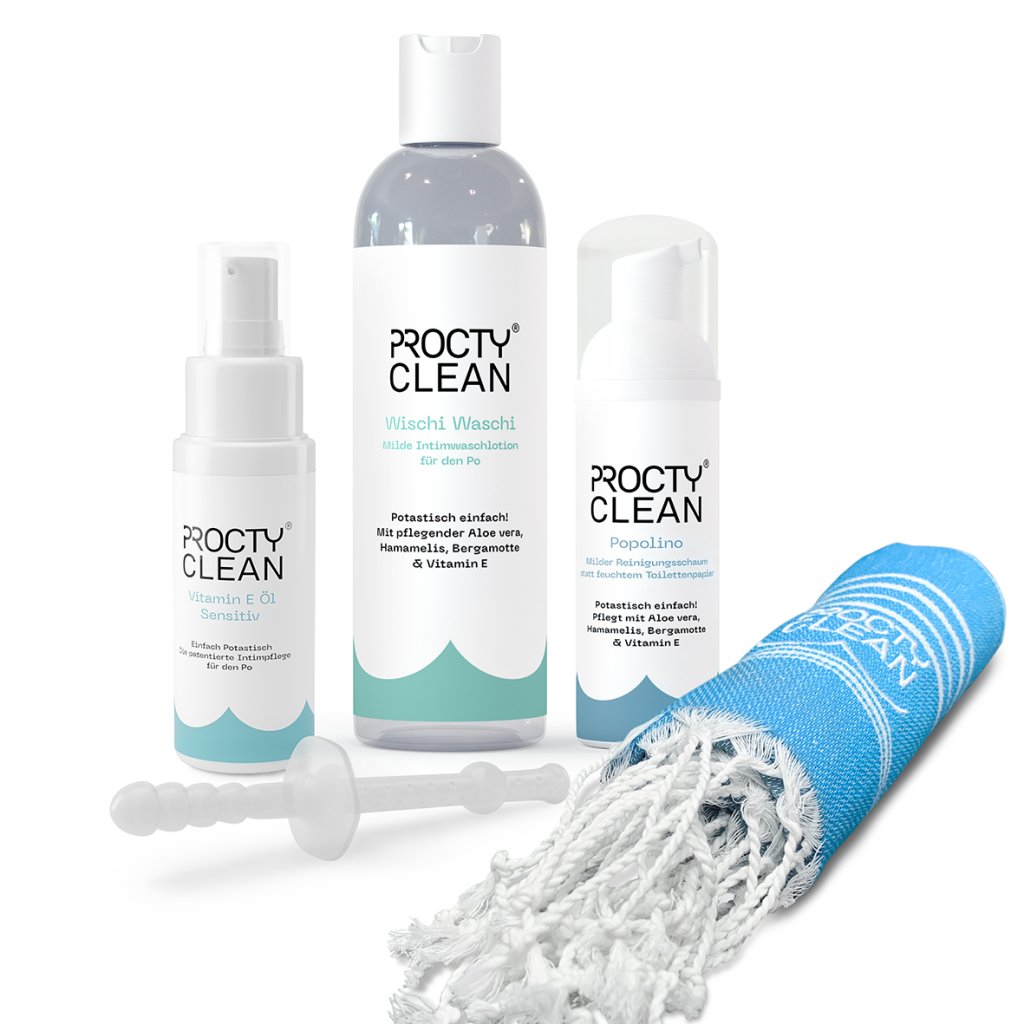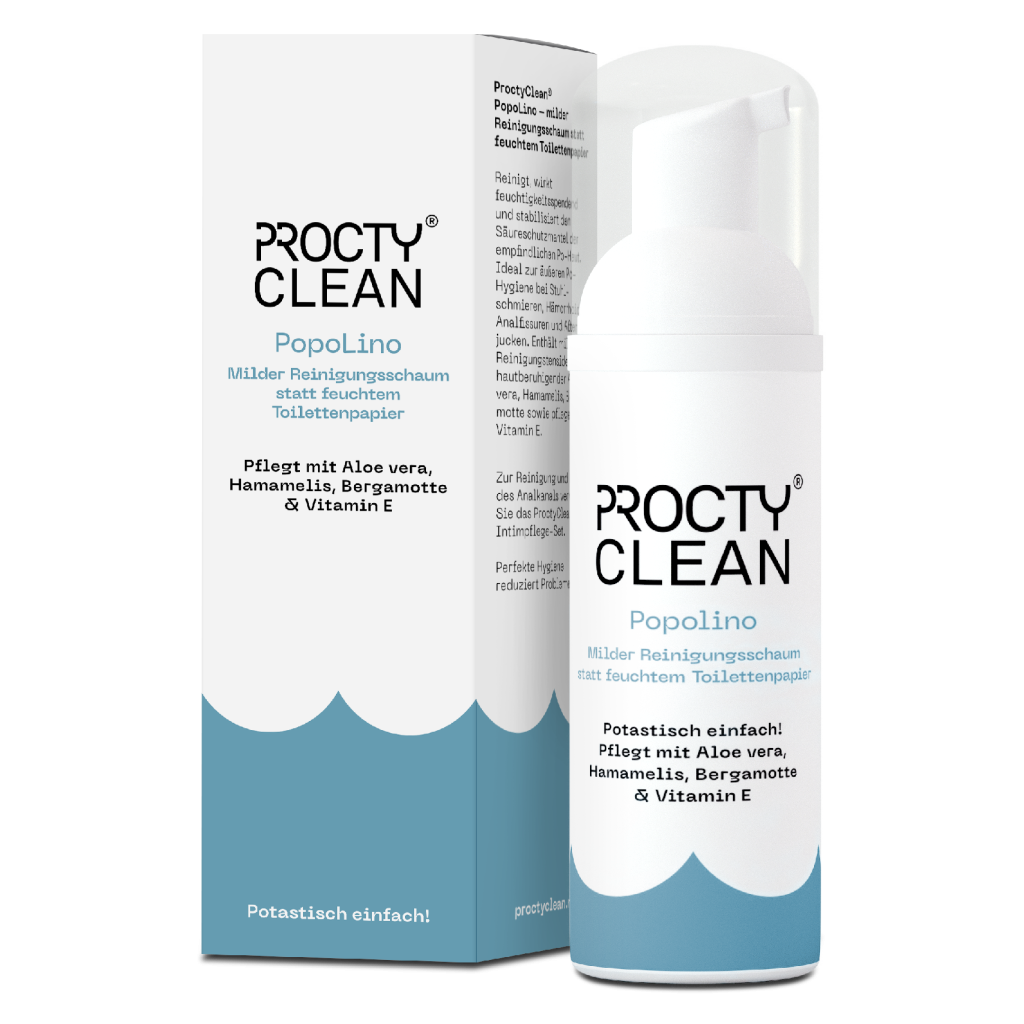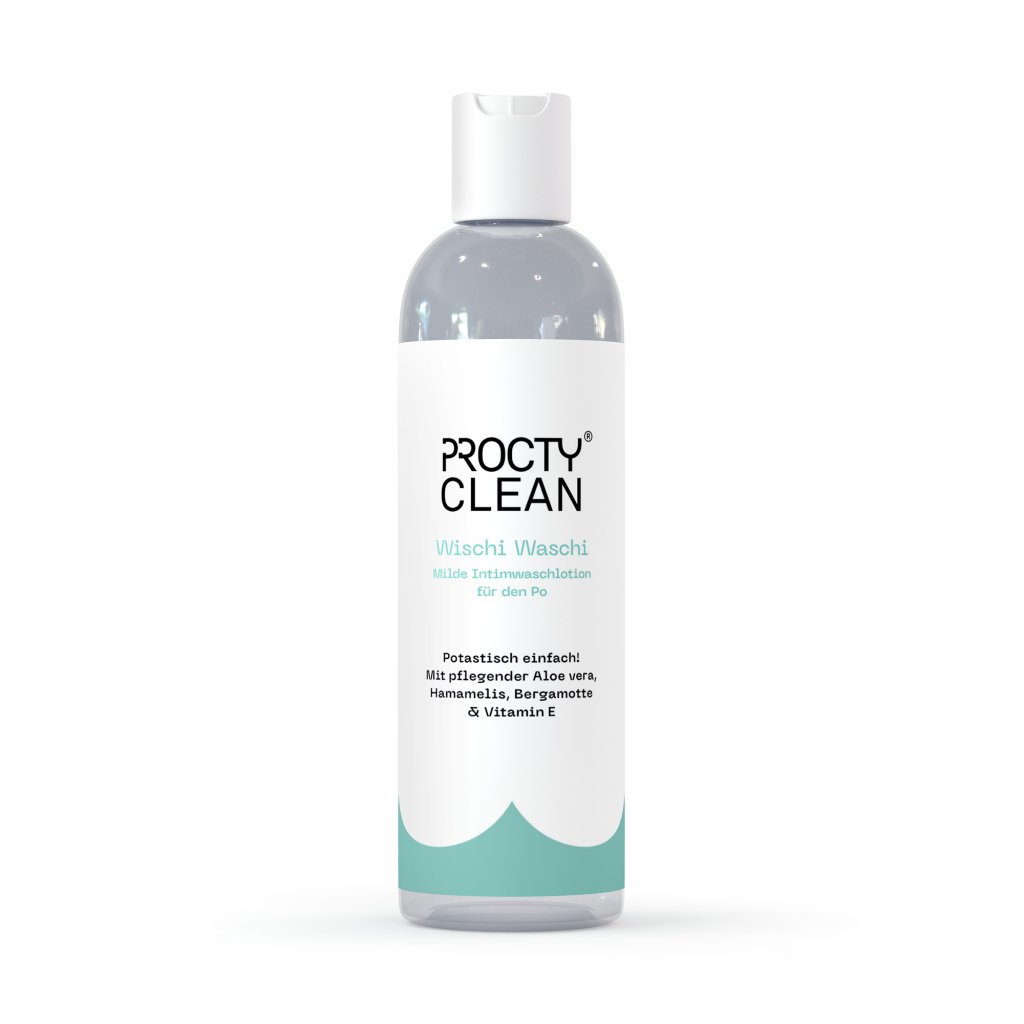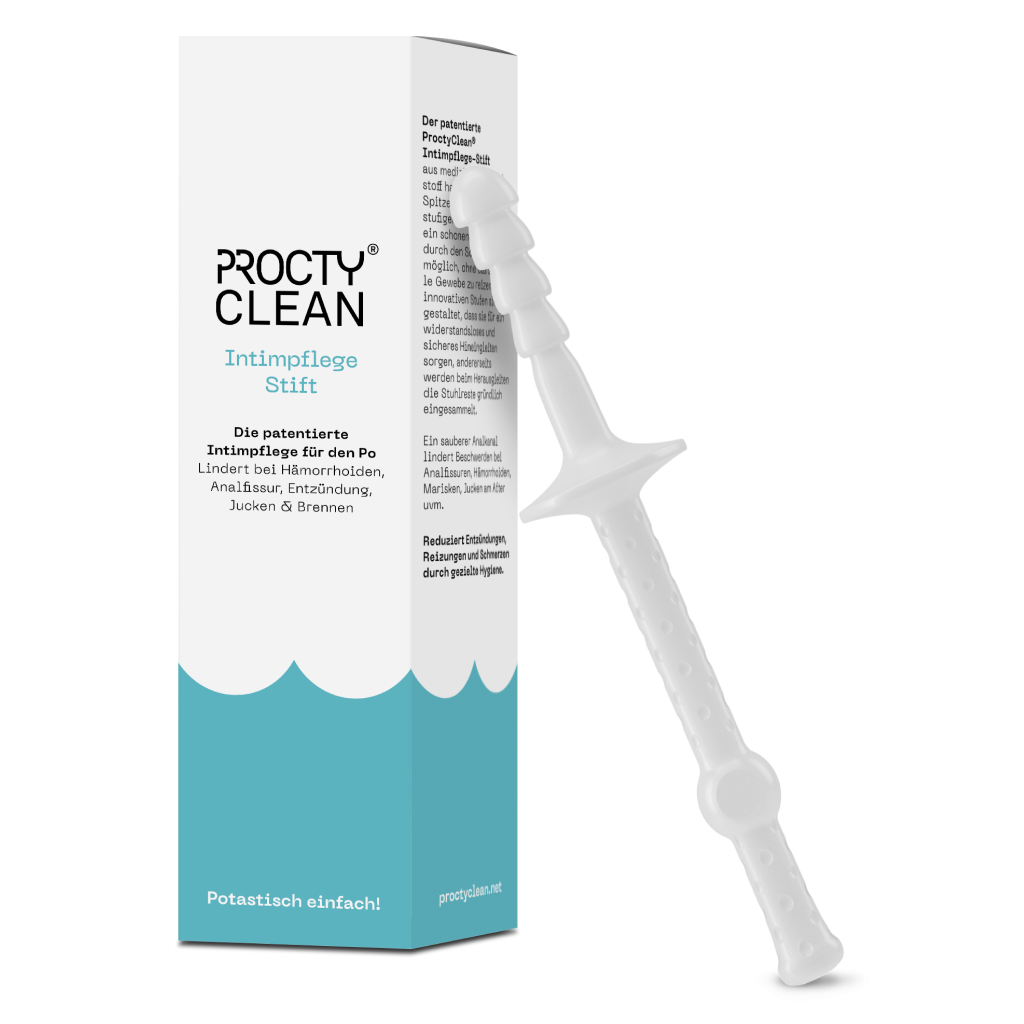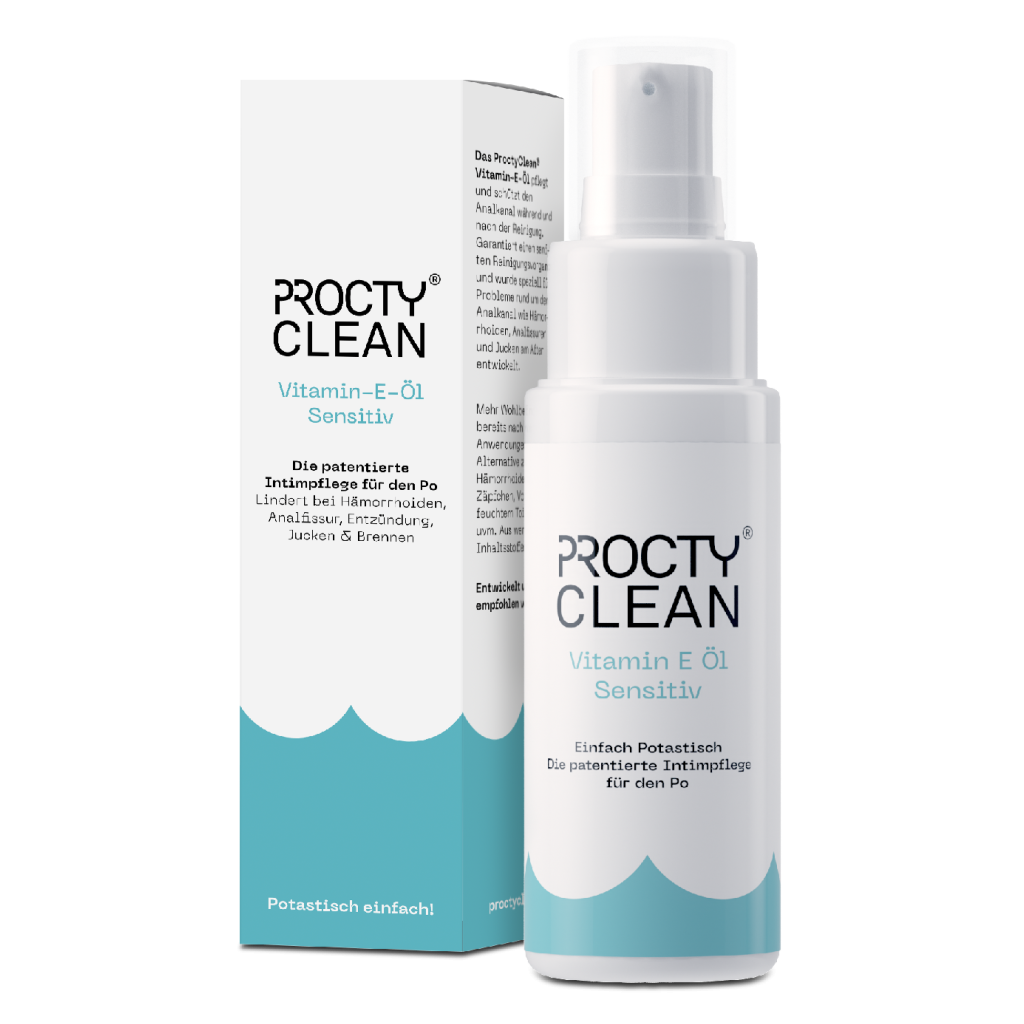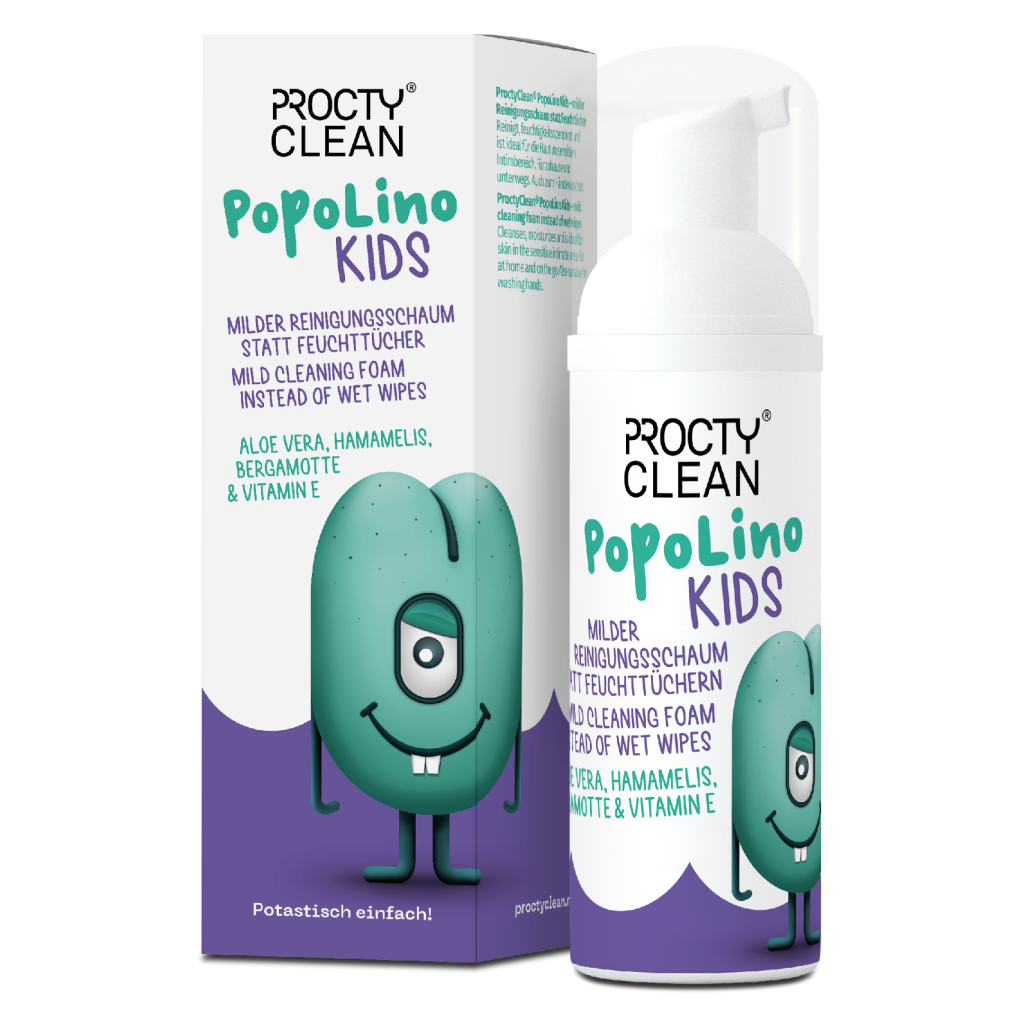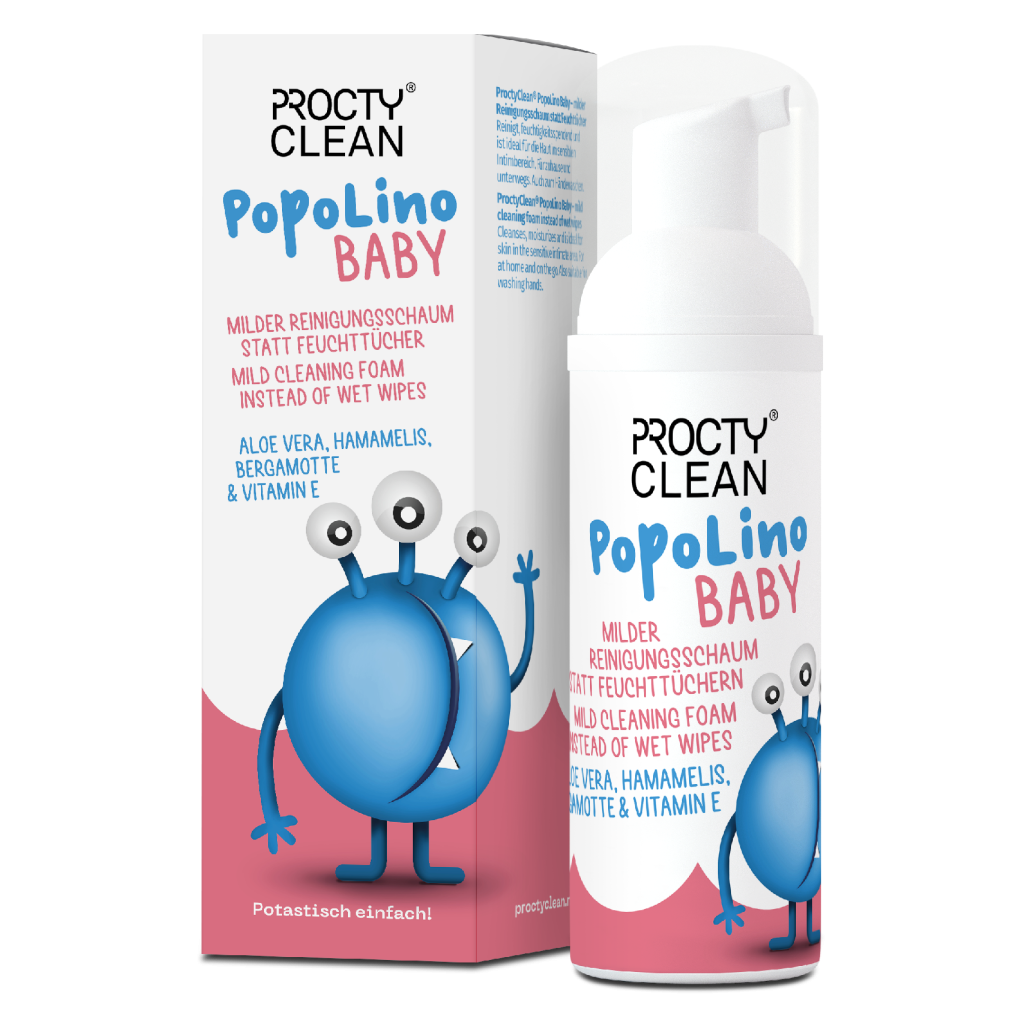Itchy anus - itching in the anus - anal itching
Let's be honest: We have all had it at least once in our life – an itchy anus. According to studies, this is the most frequently occurring localized itching - and the number of unreported cases is high. Anal itching (pruritus ani) is not an issue that people like to talk about.
Short version
The causes for the annoying itching of the anus are varied and the level of suffering is usually high. Although there are usually harmless reasons behind it, such as poor hygiene, anal itching can also be caused by diseases (hemorrhoids, stool incontinence, anal fissures, etc.). Short-term anal itching is not yet a cause for concern; however, if the unpleasant symptom persists for a longer time, a doctor should be consulted. A conversation and an examination provide clarity about the trigger, which is also the basis for treatment.
Anal itching - these are the symptoms

As the name actually states, this condition is an itching in the anal region; more precisely, it itches, tickles and scratches around the anal opening, the rosette. The anal itching (the medical term is called pruritus ani) can be very slight or quite unbearable. Depending on the intensity and cause, the itching may not be the only symptom, it may be accompanied by burning, weeping and pain in the anus.
But what does anal itching mean? Here it is important to know that itching or pruritus ani itself is not a disease, but only a symptom with which the skin of the anus wants to say that something is wrong.
If there are visible skin changes in addition to the itching, eczema or dermatitis can be the trigger. Itching of the anus is often an unpleasant side effect of other proctological diseases. But don't worry: in most cases the reasons for the annoying itching are harmless.
How often does anal itching occur?
Some only have it occasionally, others almost continuously. Anal itching is widespread, and according to studies, about 1-45% of the population is affected. The reason for this high range is the presumed number of unreported cases, because anal itching is still a taboo subject. Although every age group is affected, patients are often between 30 and 70 years old, with an above-average number of males.
Anal itching at night

When the common anal itch appears varies. Nevertheless, it is often more pronounced at night than during the day, perhaps because one is less distracted. In addition, night sweats and/or incorrect nightwear and the resulting humid climate in the bum crease can further intensify the itching. Thus, the pruritus ani also leads to sleeping disorders, as one permanently wakes up and wants to get relief by scratching. This behaviour usually worsens the situation, because the damaged epithelium creates a vicious circle. So please note: Don't scratch the itch.
One more thing: If itching only occurs in the evening or at night, worms can be the cause. If this is suspected, please consult your doctor immediately; you would like to get rid of the pests immediately.
The causes of anal itching
There are many reasons why the back itches. We don't know exactly yet, but the following reasons are suspected to be the cause of itching in the anus:
Poor hygiene, anal leakage.
If the buttocks are not properly cared for - especially after bowel movements - remaining stool residue offers ideal conditions for irritating the surrounding tissue and causing skin irritation. Excessive sweating during the night or due to non-breathable or too tight clothing can also contribute to itching of the backside more than it should. Therefore, it is recommended to clean the bottom with gentle toilet paper or preferably with lukewarm water and then dry it.
Be careful: a well-meaning reach for a practical wet wipe can often have negative consequences. Although often dermatologically tested, most commercially available wet wipes contain skin-irritating substances, which is why many doctors strongly advise against this method of care.
A thorough and gentle alternative for cleaning the anal area is the ProctyClean® intimate hygiene pen. It goes to the cause of the problem that other methods cannot reach: beyond the anus. ProctyClean® collects stool residue in the anus and anal canal and transports them outside. It also removes impurities in the many fine skin folds of the anus. The anus and rectum become clean and the buttocks remains clean, as there is no risk of new leakage of stool.
ProctyClean® is used in combination with a skin-caring oil. The skin-friendly sunflower seed oil is used together with the anti-inflammatory substances bisabolol and gaiazulene, both true benefactors from chamomile, and beneficial vitamin E. This means that even suffering during long periods of sitting is a thing of the past. After just a few applications, the quality of life is noticeably improved. And this is only possible with an average daily effort of 1-3 minutes - ideally after a bowel movement. Thorough anal hygiene could hardly be simpler.
You should remember that: If you do not feel any improvement from the ProctyClean® application or if it hurts, then please consult your doctor!
Exaggerated hygiene

This is hard to believe, but excessive hygiene measures can also lead to annoying anal itching. As already mentioned, wet wipes with aggressive ingredients can lead to skin irritation and itching, but also washing to frequently with cleansers or soaps can damage the delicate skin on the buttocks because it destroys the skin's own protective layer. The following applies to both the front and the back: Wash only with lukewarm water.
ProctyClean® ensures optimum anal hygiene without irritating the skin with aggressive substances. And when you notice that you are completely clean, there is no need to resort to strong soaps and lotions. True to the motto: Perfect hygiene reduces problems!
Functional causes of itching of the anus: hemorrhoids, anal prolapse
As already mentioned, anal itching can be a side effect of diseases. This also includes functional complaints such as hemorrhoids or anal prolapse. Hemorrhoids are the enlargement of the blood vessel cushion at the intestinal outlet, which normally provides an ideal seal. If they are enlarged, the intestinal seal no longer functions well and fluids and stool can accidentally leak out. Although hemorrhoids themselves do not itch, by creating a humid climate, they can cause skin irritation, inflammation and itching and finally even end in anal eczema.
In an anal prolapse, the lowering of the last section of the intestine causes the anal canal to leak through the anus. If even higher sections are affected, this is called a rectal prolapse. A prolapse leads to conditions and complaints similar to those of hemorrhoids and can, therefore, be just as likely to cause anal itching.
Both symptoms (hemorrhoids, anal prolapse) sometimes lead to suboptimal anal hygiene for anatomical reasons. ProctyClean® has been proven to improve the cleanliness in this sensitive area in Grades 1 and 2 hemorrhoids and thus leads to significant alleviation of the associated symptoms.
To go to the haemorrhoid-blog please click here.
Anal fissures, Anal fistulas
An anal fissure is a painful tear in the anus or anal canal. This can be caused by hard and painful bowel movements, but also by hemorrhoids or diarrhoea. The tear is accompanied by bright red blood, burning and also itching.
Often this small tear in the skin or the mucous membrane of the anus is also the cause of the formation of a fistula; this is a passage from the anal canal into the tissue. This fistula can cause nasty abscesses and penetrate the sphincter muscle. All of this causes pain, itching and weeping.
Would you like to know more about anal fissures? Go to the blog.
Diseases of the intestine

Various intestinal disorders are also possible triggers for anal itching. These are often accompanied by liquid stool, as is the case with irritable bowel syndrome or chronic inflammatory bowel diseases such as Crohn's disease or ulcerative colitis. These liquid excretions as well as the increasingly necessary wiping irritate the sensitive skin in the anal region and destroy the skin's protective mantle, which in turn promotes inflammatory processes.
Faecal incontinence also leads to inflammation, which can cause anal itching. Rarely, but nevertheless anal itching can also be caused by cancer (main trigger: human papilloma viruses, HPV) in the intestinal area. If the pruritus ani lasts longer (more than 6 weeks), the general rule is: See a doctor!
Systemic diseases
Among the systemic diseases that cause itching in the anal region, metabolic diseases such as diabetes mellitus should be considered. Every second person affected regularly experiences itching, which can sometimes be below the waistline. The reasons for this have not yet been sufficiently researched.
Other internal diseases such as chronic renal insufficiency or thyroid disease can also be behind itching in the anal region. A disturbed immune system (such as in HIV infection or cancer) also makes it easier for many microorganisms to penetrate.
Infections that cause anal itching
Although the rectum is a taboo zone for us, others feel incredibly comfortable there. For example, a worm disease can be a trigger for itching in the anal region, which occurs mainly in the evening and at night. It is also important to remember this with children who are in contact with pets.
Fungi also feel very comfortable in the anal intimate area, especially if there is already inflamed skin with ideal growing conditions. If it is moist, then they are unstoppable. This is often the case with small children and persons in need of care. The yeast fungus Candida albicans is the most common representative of its kind. If there is a poor immune system, it is very easy for the fungus to proliferate.
Other pests in the anal region are viruses. For example, sexually transmitted diseases such as HPV or herpes viruses cause itchy nodules and lesions in the intimate area.
Sometimes bacterial infections are also responsible for the annoying twitching in the crotch. These can be caused by bacterial diarrhoea or inflamed wounds or can be brought on board by unprotected sexual intercourse (such as Chlamydia).
Itchy skin diseases
Other triggers for anal itching are various skin diseases. Anal eczema, the most common proctological disease, is sometimes a consequence of other diseases in this area and is accompanied by anal itching, anal weeping and burning of the anus. If the eczema is triggered by external skin irritating factors, it is called (allergic) contact eczema. These include various ingredients of main care or intimate hygiene products (fragrances with allergenic potential), moist toilet paper (hormone-active preservatives such as parabens, surfactants) or medicines.
In addition, people who suffer from psoriasis or neurodermatitis are often affected in the anal region.
Medication

In some cases, locally applied medications, such as antibiotics, local anaesthetics, cortisone containing medication or fungicides can cause itching in the anus and intimate area. Cortisone preparations reduce the skin's resistance to fungal infections, while antibiotics and local anaesthetics make the skin sensitive. In this case it is necessary to stop the medication or replace it with another product; naturally only after consultation with your doctor.
Food

Although there is insufficient data, it is believed that certain foods, especially when consumed in large quantities, can cause anal itching. This may be the case with coffee, chocolate, beer, nuts, strongly spiced foods, citrus fruits and dairy products, among others. Spicy meals can also cause diarrhoea, creating another source of soreness, burning and itching.
Mental/psychosomatic diseases
When no reason can be found for the anal itching, one should also think of mental illness. It is well known that mental disorders such as anxiety, stress or depression can cause this itching.
Itching at the anus: When should a doctor be consulted and which one?

If itching of the anus is only temporary or occurs once every few months, it is not necessarily urgent to consult a doctor. Mostly harmless causes such as wrong food or drinks, skin care products or hygiene mistakes are behind it. However, if the itching of the anus persists for a longer period of time (more than 6 weeks) or is hardly bearable, you should see a doctor. A longer lasting itching can also be a symptom of a more serious illness. At the latest when itching is accompanied by a burning sensation in the anus, a visit to the doctor is unavoidable in order to avoid a chronic course of pruritus ani.
May we introduce: Proctologist – A doctor you can trust
Even if you prefer to see your family doctor, an internist, dermatologist or proctologist is the better choice for clarifying itching in the anus. The proctologist is most knowledgable about the buttocks, as he or she deals almost exclusively with diseases of the rectum and quickly knows the right examinations for clarification. He/She is also always up to date with the latest therapeutic developments. Many proctologists are also surgeons, so that in an emergency everything is on one hand.
How does the proctologist make a diagnosis?

The most important thing, of course, is to find a doctor or proctologist you can trust for this particularly sensitive zone. Then the situation is clarified in a detailed doctor-patient consultation. This includes questions about the duration and time of itching, the severity, and also addresses possible basic diseases or allergies. Hygiene measures should also be discussed, because perhaps you are simply TOO good with the soap.
Afterwards, there must also be a local inspection, where the anal area is thoroughly inspected and palpation of the anus and rectum is done. If an infection is suspected, swabs for fungi or bacteria can provide clarity. If suspicious changes are visible on the tender skin of the anus, a biopsy may be necessary to be on the safe side.
If the doctor does not find anything here, he/she will recommend an examination of the rectum (proctoscopy) or a colonoscopy, where the entire colon is thoroughly examined.
To round off the whole picture, a blood test and possibly an allergy test could provide the missing link to the case of the itchy bottom.
The treatment: How is anal itching treated?
Video: What helps against itching and burning of the anus?
Which treatment is recommended for itching of the anus depends entirely on its cause. In general, however, the cause is always treated and once this is resolved, the itching in the anus disappears immediately. For example, correct blood glucose control may be the right approach for diabetics. In cases where the anal itching is almost unbearable, the focus is also on symptom relief. The following measures can thus make everyday life more bearable:
ProctyClean® – Prophylaxis and relief for anal itching
As we have already heard, optimized anal hygiene is necessary to prevent anal itching. Optimized here means thorough, but not aggressive. In many countries it is quite normal to clean the anus with water after defecation. Lukewarm water is recommended for hygiene.
Perfect anal hygiene reduces problems!
Exactly! It was this consideration that led to the development of the patented ProctyClean® intimate hygiene pen: Optimised anal hygiene to target the source, to go where even paper and water cannot reach. The specially shaped head of the ProctyClean® intimate hygiene pen is simply moistened with ProctyClean® vitamin E oil and then carefully inserted into the anal canal. This is best done under running water. With gentle movements, any residual stool is removed from this zone and cannot escape into the anal region later. With this simple application once a day, your bottom becomes immaculately clean - all this in max. 3 minutes. Hard to believe? Read the customer testimonials about our product or try it out for yourself!
Soothing hip baths

Hip baths with various additives can also be a good alternative to eliminate anal itching permanently or at least for a while. Suitable anti-inflammatory and soothing additives are available from pharmacies.
Those who prefer to rely on the healing properties of plants will find oak bark, yarrow and chamomile soothing - they all specialise in itching. Marigold can also release its healing potential here. Caution: For irritated skin, the essential oils of these plants may be too harsh. Only the outer anal region is considered here.
Which ointment to use for a burning and itching anus?

Please - only after consultation with a doctor: If it is not bearable at all, various creams, ointments and pastes can help to eliminate the symptom of anal itching. Zinc oxide pastes, for example, have proven to be effective. Short term, local anaesthetic creams provide a high quality of life. The active ingredients menthol, camphor, lidocaine and polidocanol are popular and well-tolerated.
However, it has to be considered that creams with medicinal additives may also be a strain on the sensitive skin of the anus after prolonged use. Thus, creams or ointments against fungi and bacteria should only be used sparingly and only short term.
With severe symptoms, creams containing cortisone are only used for a short period of time, as they can cause thinning of the skin and even more sensitivity.
The most important advice in regard to anal itching: Please do not scratch!
Would you like to eliminate the cause of annoying itching with ProctyClean instead of continuing to bandage the symptoms? Click here to process your order for optimal anal hygiene. It’s worth a try!

